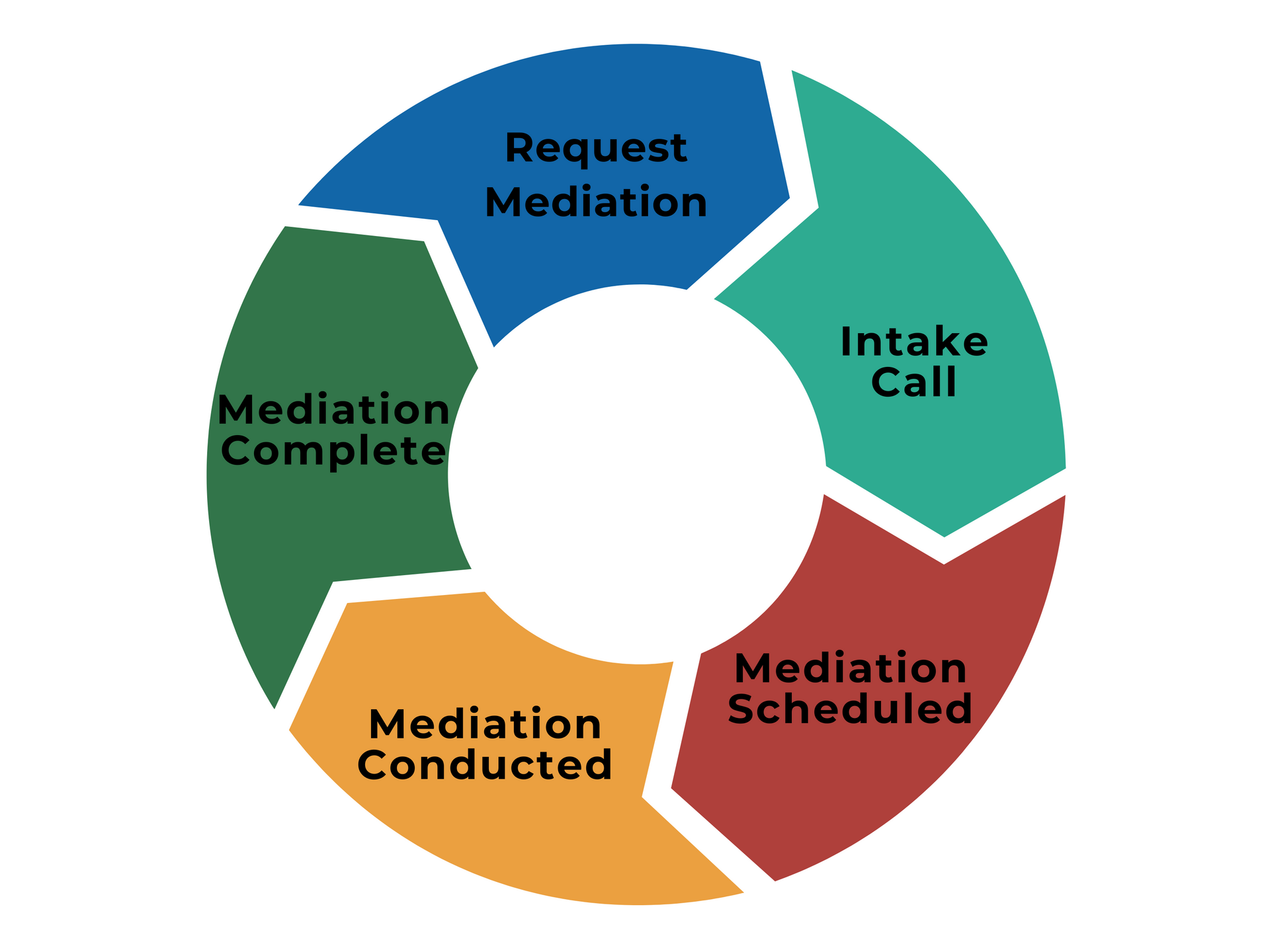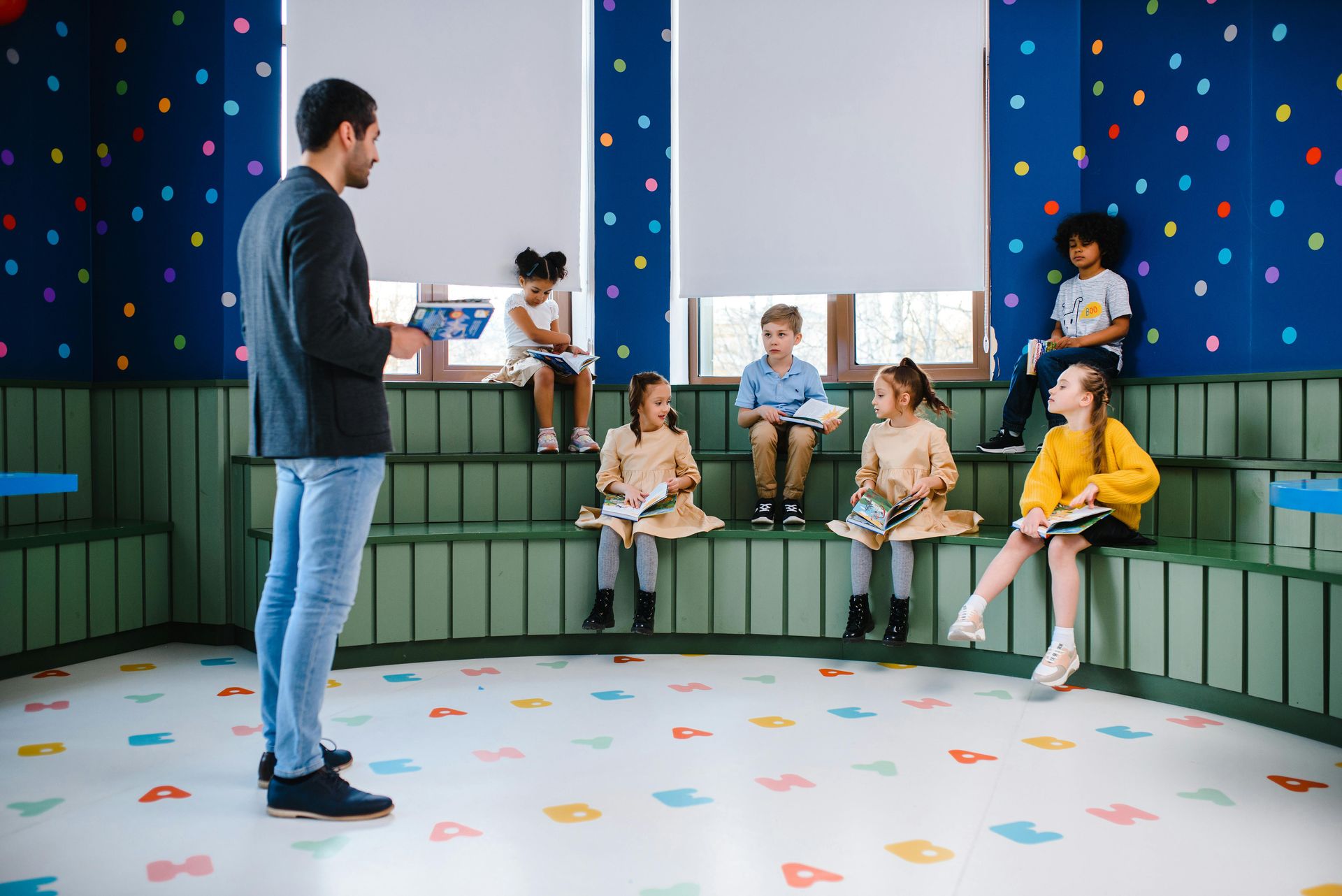Special Education Mediation Process in New York State
1st: Request Mediation
Mediation Request Form- Parent or school district makes request
- Make request in writing or use optional Mediation Request Form below
- Initiate the process by contacting info@osedisputeresolution.org or 1-855-737-6583
- SEDRC will respond within 24-48 hours
2nd: Intake Call
- Case Coordinator from local CDRC reaches out to all parties
- Chance to have your questions answered
3rd: Mediation Scheduled
- Case Coordinator from the CDRC schedules the mediation
- Scheduling is usually completed within 2 weeks
- Mediation may be conducted either in person or virtually
- Free service
4th: Mediation Conducted
- Neutral mediator (not an employee of district or NYSED)
- 2-3 hour meeting
- If an agreement is reached, it will be written and signed
- The agreement is legally binding and enforceable
5th: Mediation Complete
Possible outcomes:
- Agreement
- Partial Agreement
- No Agreement
In all of these cases, mediation can help open the door to continued dialogue.

Why choose special education mediation?
- Joint problem solving: Parties have the flexibility to create their own solutions, leading to greater commitment and ownership of the agreement.
- Free of charge: Mediation is funded by the New York State Education Department. There is no cost to either parents, guardians or school districts.
- Improved communication:
Mediators help clarify each party’s interests, leading to better understanding and dialogue.
- Quick scheduling: Mediation sessions are typically scheduled within two weeks of the request ensuring timely resolution of disputes.
- Supportive environment: Mediation is less adversarial than impartial hearings, fostering a more cooperative approach to resolving conflicts.
- Resolve conflict: Mediators address the root causes of disputes, going beyond surface-level issues.
- Legally binding outcomes: Written and signed mediation agreements are enforceable in any State court of competent jurisdiction or in a district court of the United States.
- Cost and time efficiency: Mediation is often less expensive and less time-consuming than a due process hearing.
- Party buy-in: Since parties develop the solutions themselves, they are more likely to comply with the terms of the agreement.
What can I expect during a special education mediation?
The special education mediator will introduce themselves and explain their role as a neutral and impartial facilitator. The mediator will clarify how the special education mediation process works, outline its key principles, and answer any questions the parties may have.
Next, the parents and school district representatives will share their concerns, needs, and interests regarding the child’s special education services. The mediator listens carefully, reflects on what is being shared to clear up any confusion, and may ask questions to ensure that everyone fully understands each other’s perspective. The mediator also assists the parties in exploring options, discussing ideas, and brainstorming solutions for the child’s education.

Strong emotions and disagreement are normal when people are in conflict, and mediators are trained to help manage both. When needed, the mediator or the parties can take a break or request separate meetings with the mediator to explore concerns privately before returning to the joint session. If the mediator meets with one party, they will always meet with the other party separately as well.
If the family and school reach an agreement, the mediator will put it in writing and review it with them to ensure it reflects the next steps they have agreed to. Once final changes are made, the agreement will be signed by both parties, and each will receive a copy. The agreement is then legally binding.
If no agreement is reached, the parties can take a break and return to mediation to continue working together to resolve the issues. Parties may also complete a partial agreement, agreeing to some issues and using a different process to decide those that remain. The agreement will still need to be written, reviewed, and signed, and the agreements reached will become legally binding.
If the parties are still unable to reach an agreement, the mediation process will be closed. The unresolved issues may be discussed with the CSE (Committee on Special Education) or IEP (Individualized Education Program) team or pursued through another dispute resolution process like an Impartial Hearing or State Complaint
How do I prepare for mediation?

How can parents and guardians prepare?
- Review information:
- Familiarize yourself with your child’s Individualized Education Program (IEP)/Individualized Education Services Program (IESP) and any prior evaluations or reports
- Learn about your child’s rights under special education laws and rules if possible (Individuals with Disabilities Education Act (IDEA); NYS Education Laws and Regulations)
- Gather relevant documents:
- Bring copies of the IEP/IESP, evaluations, progress reports, medical records, and any other relevant documentation
- Develop a plan:
- Write down your concerns and examples of what has or hasn’t worked in your child’s education
- Identify what issues are in conflict
- Define your goals
- Think about alternative solutions that could work for both sides
- Consider what support, if any, your child would need to be successful
- Be open minded:
- Listen and consider different perspectives
- Keep the focus on your child’s best interests
How can school districts prepare?
- Select the mediation team:
- Identify who will attend the mediation: Who has knowledge about the student?
- Authorize a decision-maker: Who has knowledge about what is possible for the school district?
- Review the student's IEP/IESP
- Gather information:
- Review the student’s history (progress, challenges, and needs)
- Gather the latest reports from teachers, therapists, and specialists
- Talk with the child's teacher and service providers

- Develop a plan:
- Be prepared to explain the child’s special education programs and support services that have been provided or proposed
- Identify areas for flexibility, considering possible modifications or accommodations
- Have potential solutions prepared to discuss with the parents or guardians
- Be open minded:
- Listen and consider different perspectives
- Keep the focus on the child’s best interests

Who are the mediators?
A special education mediator facilitates the mediation process by helping families and school districts reach agreements. Mediators have received extensive training in conflict management and special education law, completing two apprenticeships—one in community mediation and one in special education mediation. They are also required to meet annual continuing education standards to stay current with new practices and regulations. Mediators are neutral third parties and are not employed by the New York State Education Department (NYSED), local school districts, or the New York City Department of Education (NYCDOE).
Mediators are members of the community who provide services through their local Community Dispute Resolution Center (CDRC). CDRCs are nonprofit, independent agencies with extensive experience in providing mediation (including special education mediation) and other services locally.
CDRCs serve each of New York State's 62 counties. SEDRC can connect you with the center in your area to start the mediation process. Call 1-855-RESOLVE (1-855-737-6583) or email info@osedisputeresolution.org.

